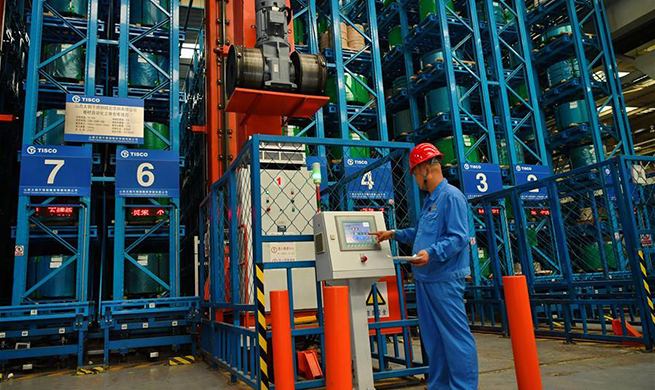BERLIN, June 4 (Xinhua) -- The Federation of German Industries (BDI) has called for a change of course from the German government.
"The economic situation is increasingly becoming a risk, many problems are homemade," said BDI president Dieter Kempf at the German Industry Day here on Tuesday. "The change of course is due. Government policy is harming companies."
According to Kempf, Germany would be in a position to save 80 percent of its greenhouse gas emissions by the year 2050 compared to 1990 with optimal political control using the "available and foreseeable technologies".
More so, Germany could even achieve more than 80 percent in cooperation with other industrialized countries if climate protection could be successfully internalized.
"People and industry are demanding clarity in energy and climate policy -- and as quickly as possible," said Kempf, while complaining about a lack of reliable information amidst new reduction targets.
"We thirst to find out reliably what the future holds," Kempf said, adding that the results of the German climate cabinet from last week as "vague announcements" that were "far from sufficient".
A German solo effort in climate policy would result in extremely high costs, but would hardly have a positive effect on climate protection. The BDI is calling for CO2 pricing in conjunction with other instruments that could help achieve climate targets.
Without setting a price for carbon emissions, Germany's phase out of coal by 2038 might even increase CO2 emissions on the European level, according to an analysis by the Potsdam Institute for Climate Impact Research (PIK) published on Tuesday.
Chancellor Angela Merkel countered the BDI's criticism of the government's economic policy. In view of the major challenges posed by digital change, politics and business had a shared responsibility, Merkel said on Tuesday.
She added that government expenditures for research had been increased and that the German government carried out billion-dollar investments in areas such as artificial intelligence.
According to Merkel, German SMEs were not well positioned in the global platform economy such as cloud business and data storage as well as new digital business models.
As far as the German industry is concerned, the problems are a high tax burden and the highest energy costs in Europe from which German companies are suffering. According to BDI, the expansion of the German electricity grid is not progressing fast enough. Currently, not even a quarter of the planned expansion of 7,700 kilometers has been realized or even approved.
With regards to the German government's tax policy, Kempf advocated the complete abolition of the controversial solidarity surcharge which was introduced after Germany's reunification and is transferring funds from the richer western parts of Germany to the eastern states.
Not surprisingly, the German industry would also like to see a "rapid modernization" of corporate taxes and is demanding that the average taxation of companies be reduced from around 31 to 25 percent in order to "safeguard prosperity and employment in Germany." According to the BDI, the average company taxes paid in the EU are around 22 percent.













